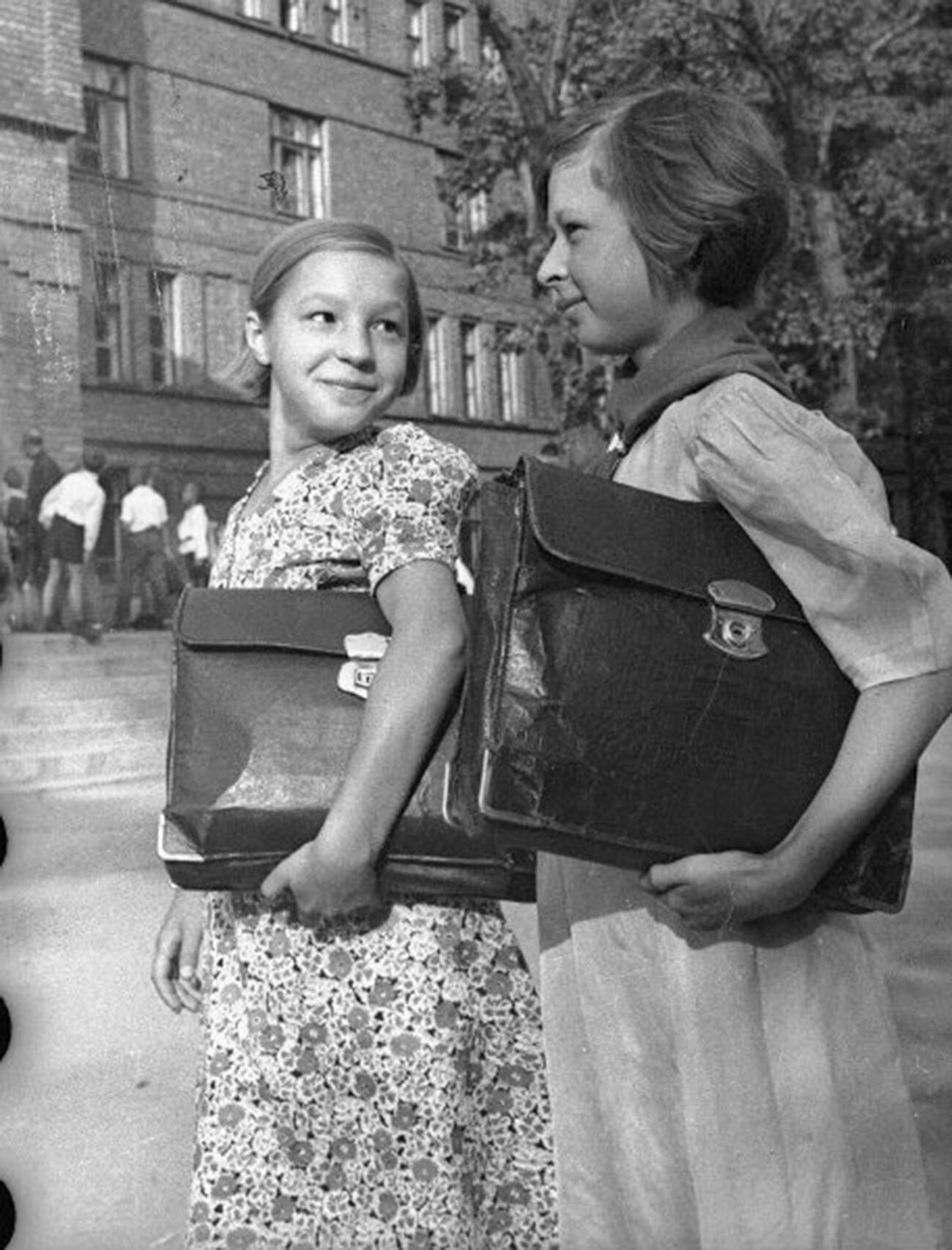What Russia was like in 1942 (PHOTOS)
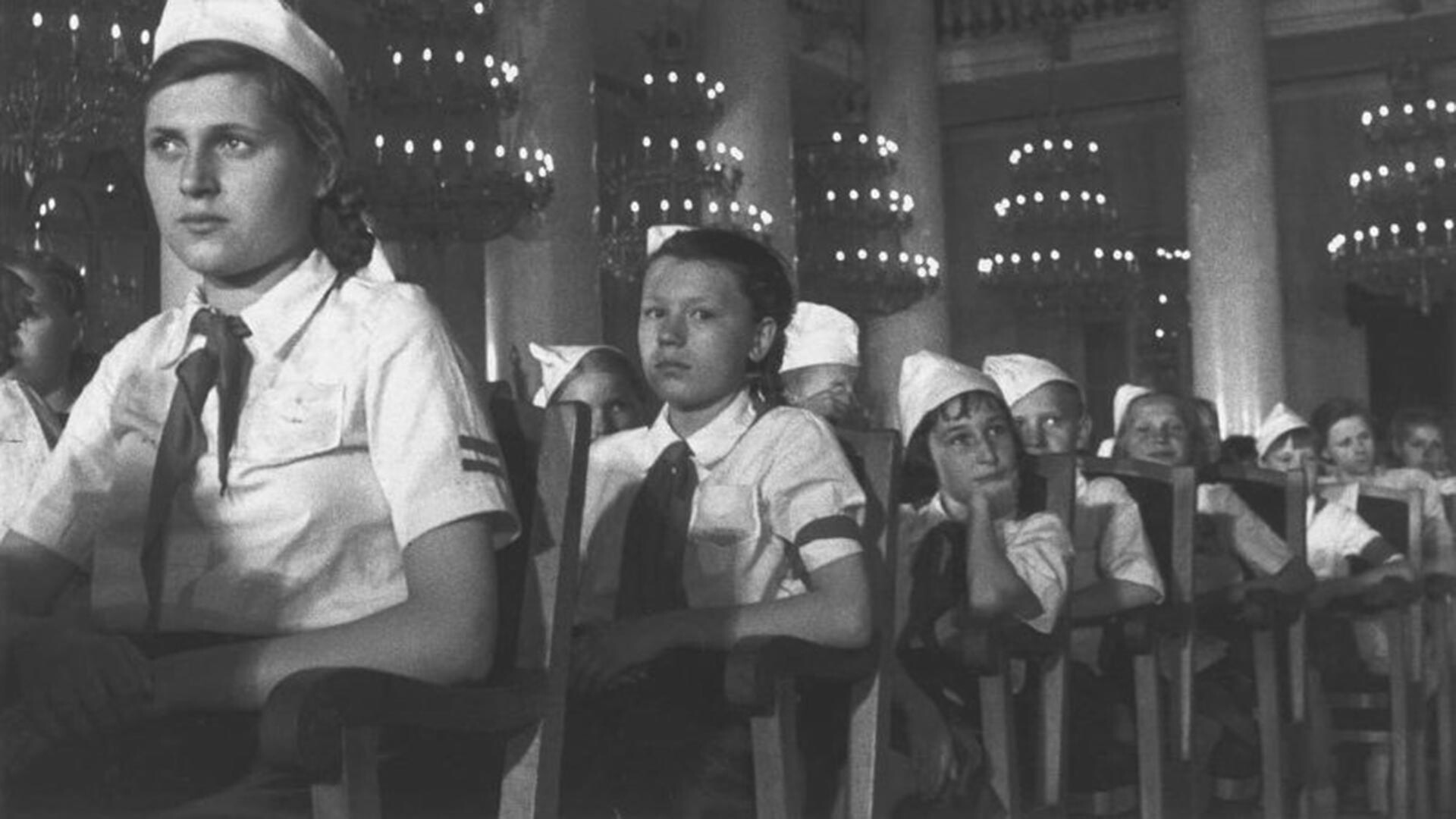
Military skiers during the liberalization of Moscow Region during the Battle of Moscow.
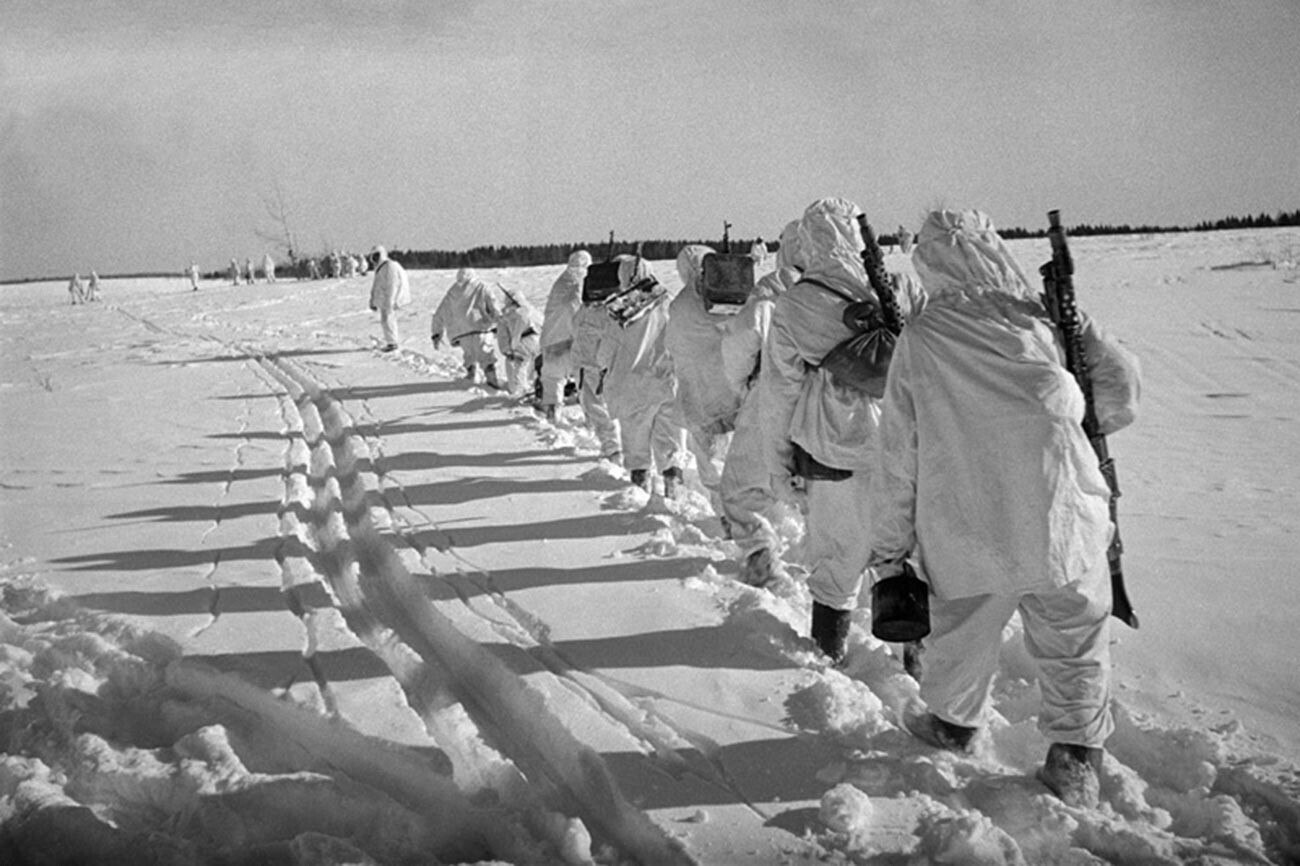
A church destroyed by the Nazis in the city of Mozhaisk near Moscow.
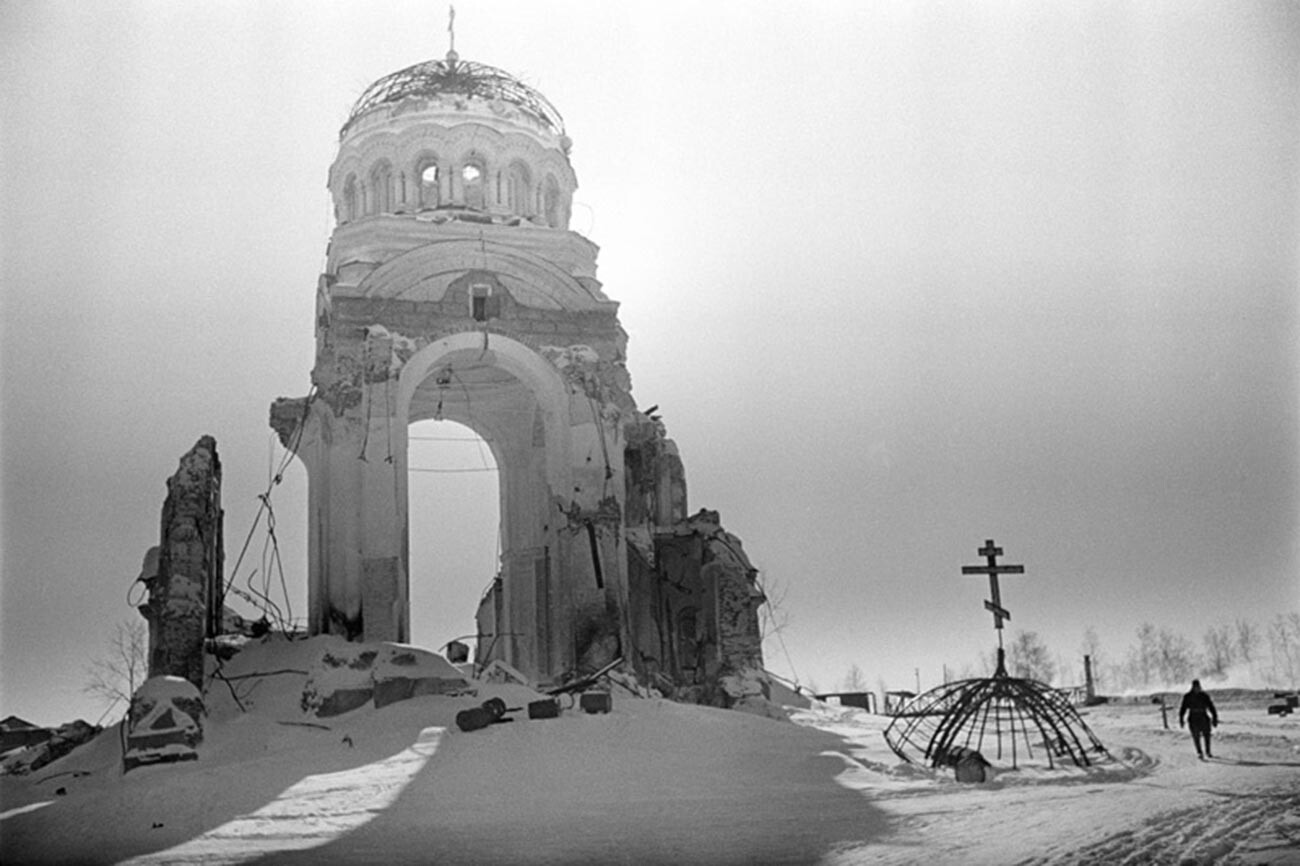
Artillery during the Battle of Moscow.
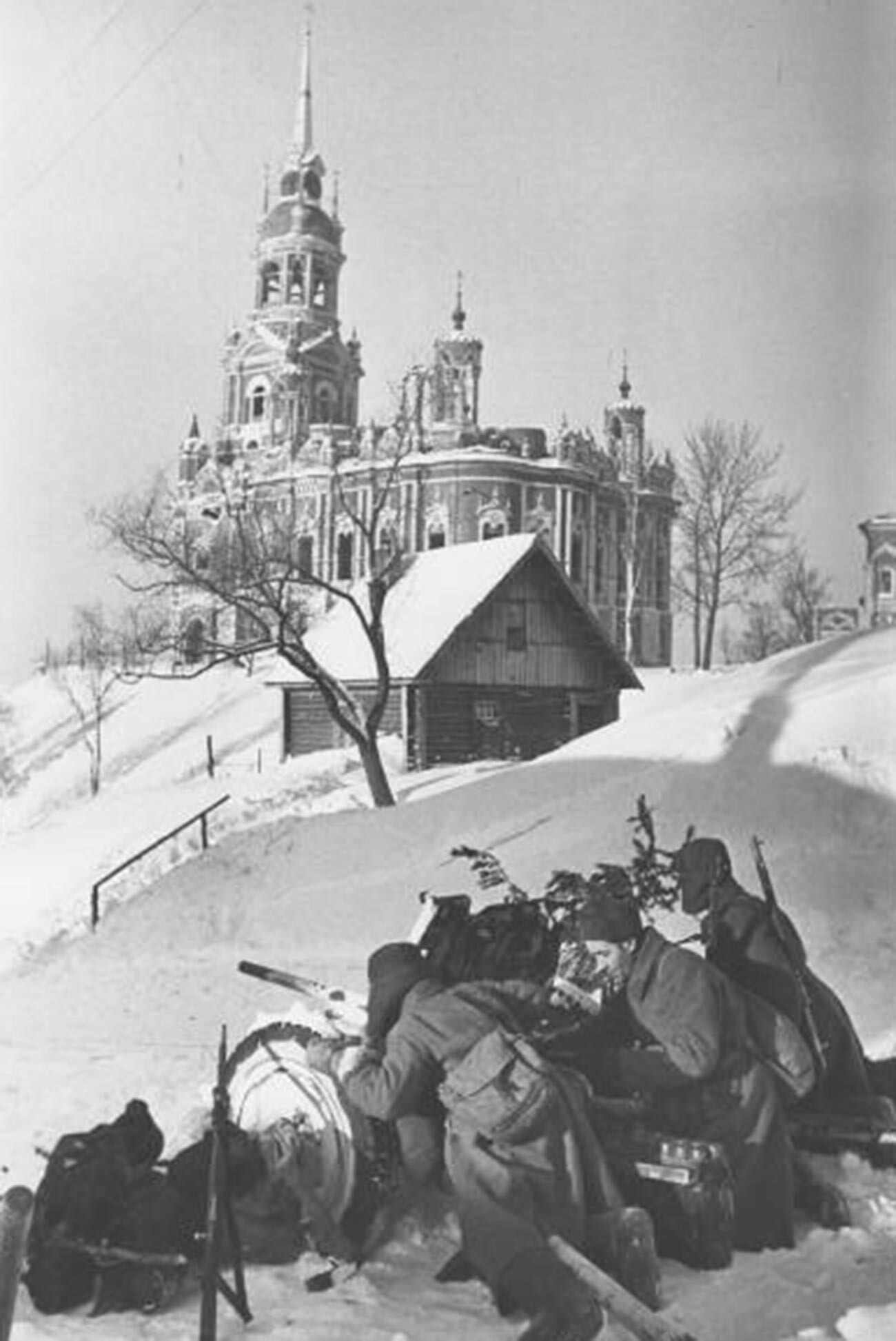
A nurse bandaging a wounded soldier.
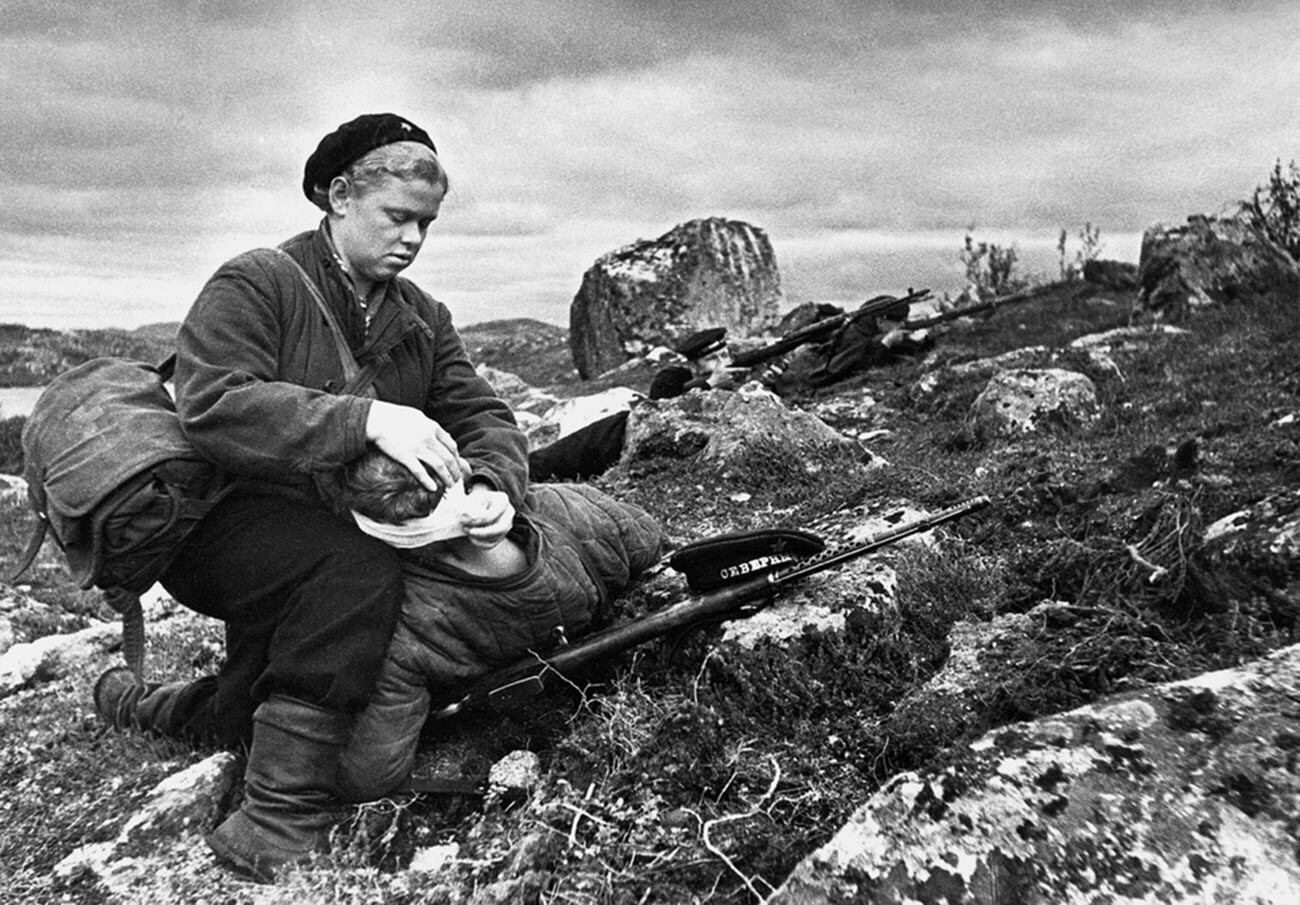
Submarine soldiers of the Baltic Fleet singing and playing guitar.
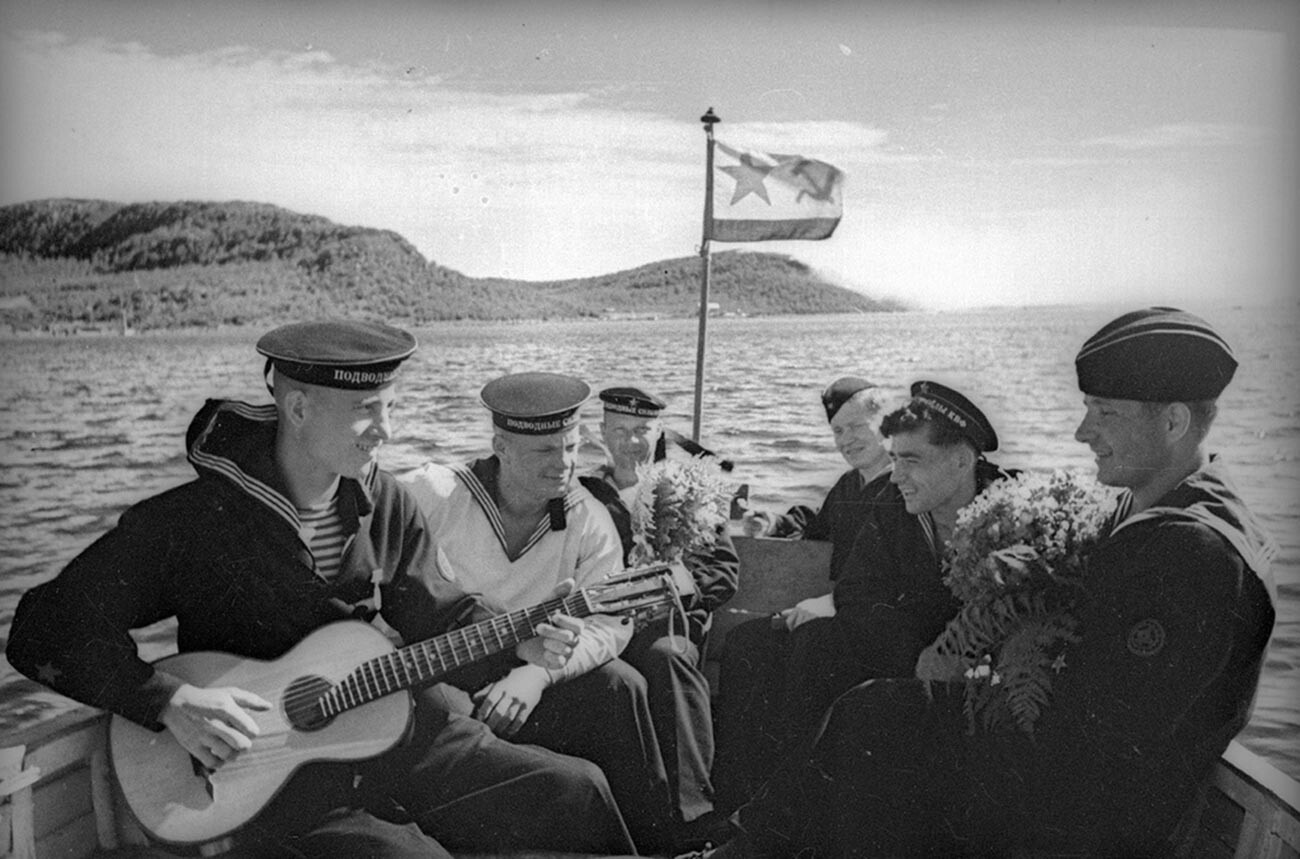
Sailors of the Northern Fleet during a resting minute.
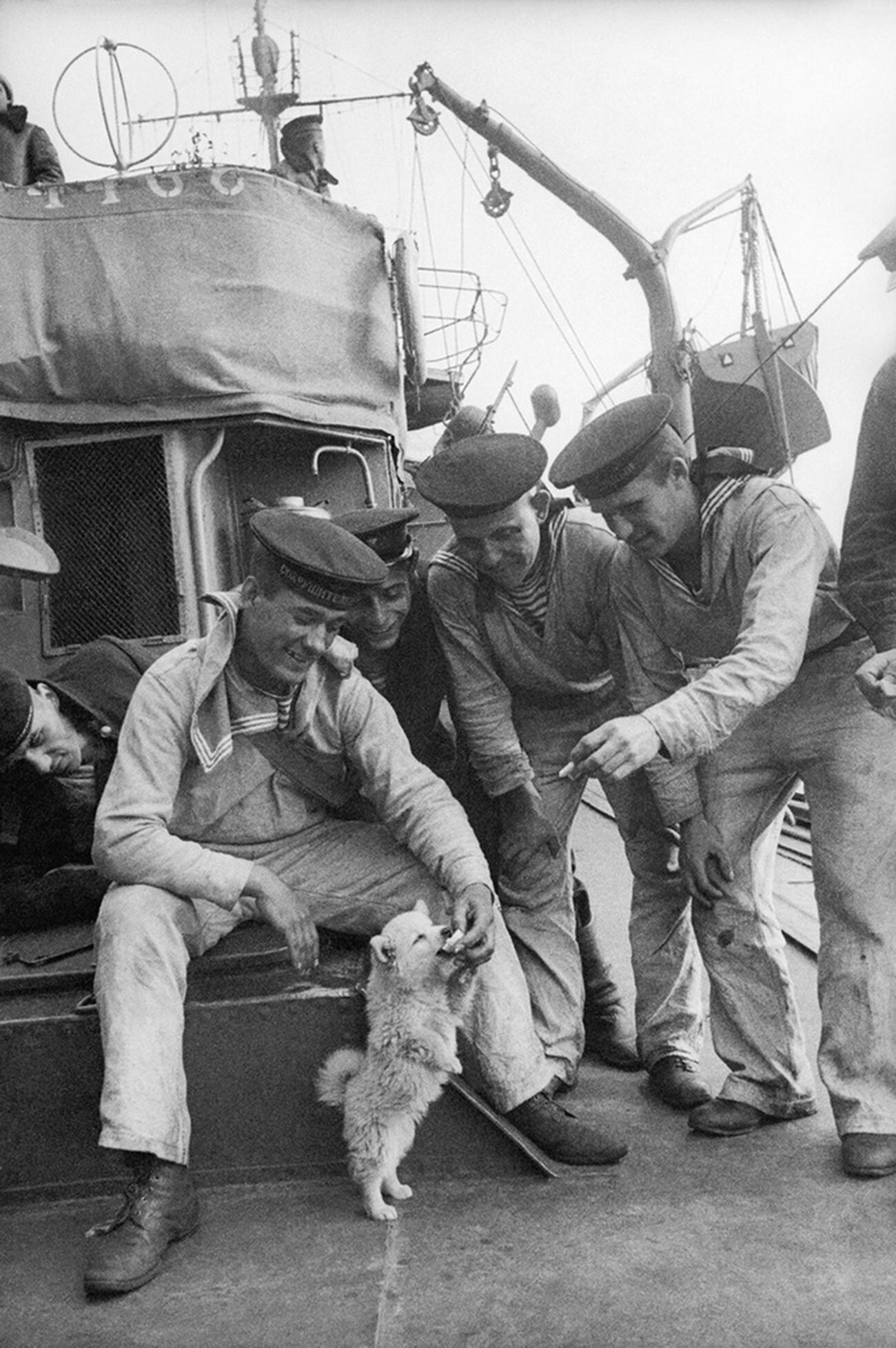
Before a soccer match between Soviet sailors and the American and British allies.
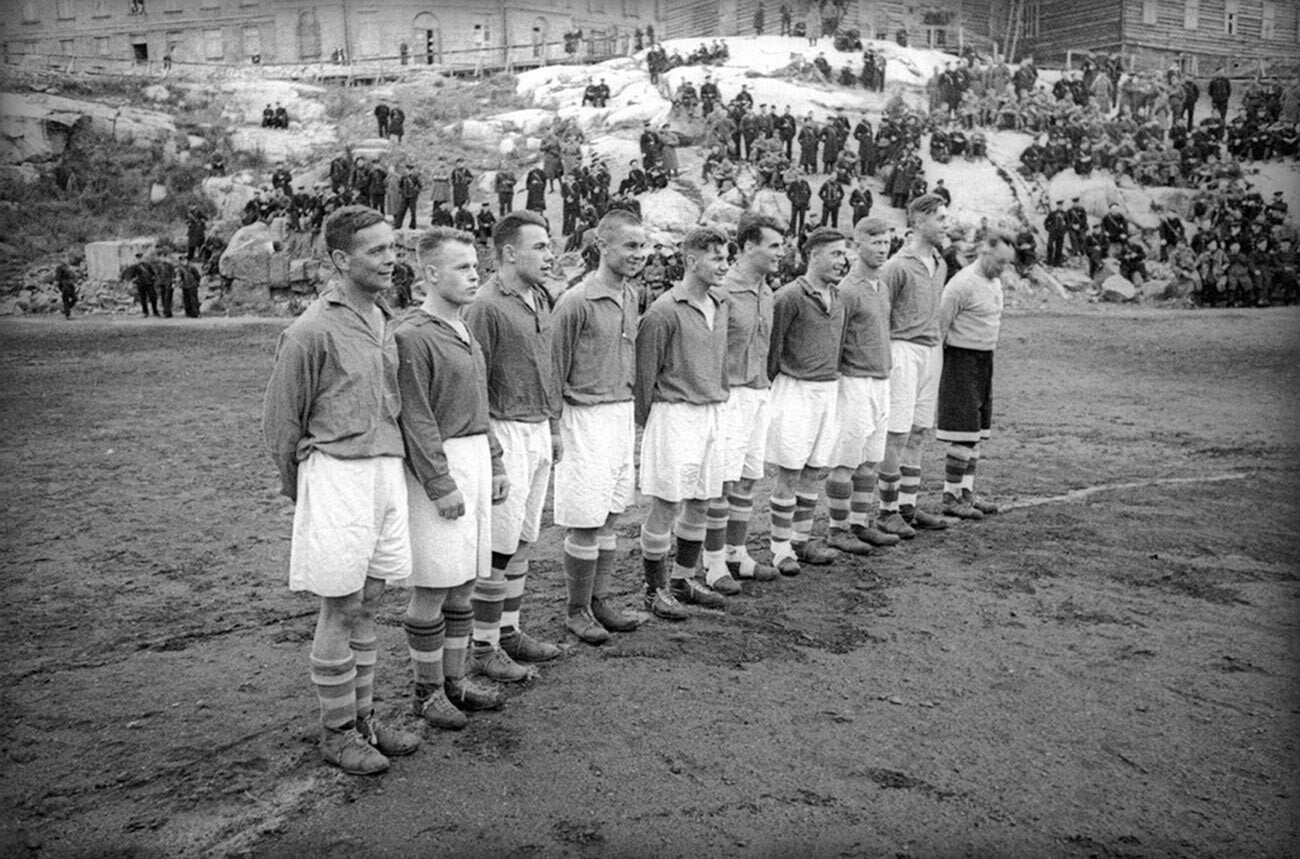
Fighter pilots squadron. The aviation bravery and drama was romanticized and immortalized in the great Soviet movie ‘Only ‘Old Men’ Are Going Into Battle’.
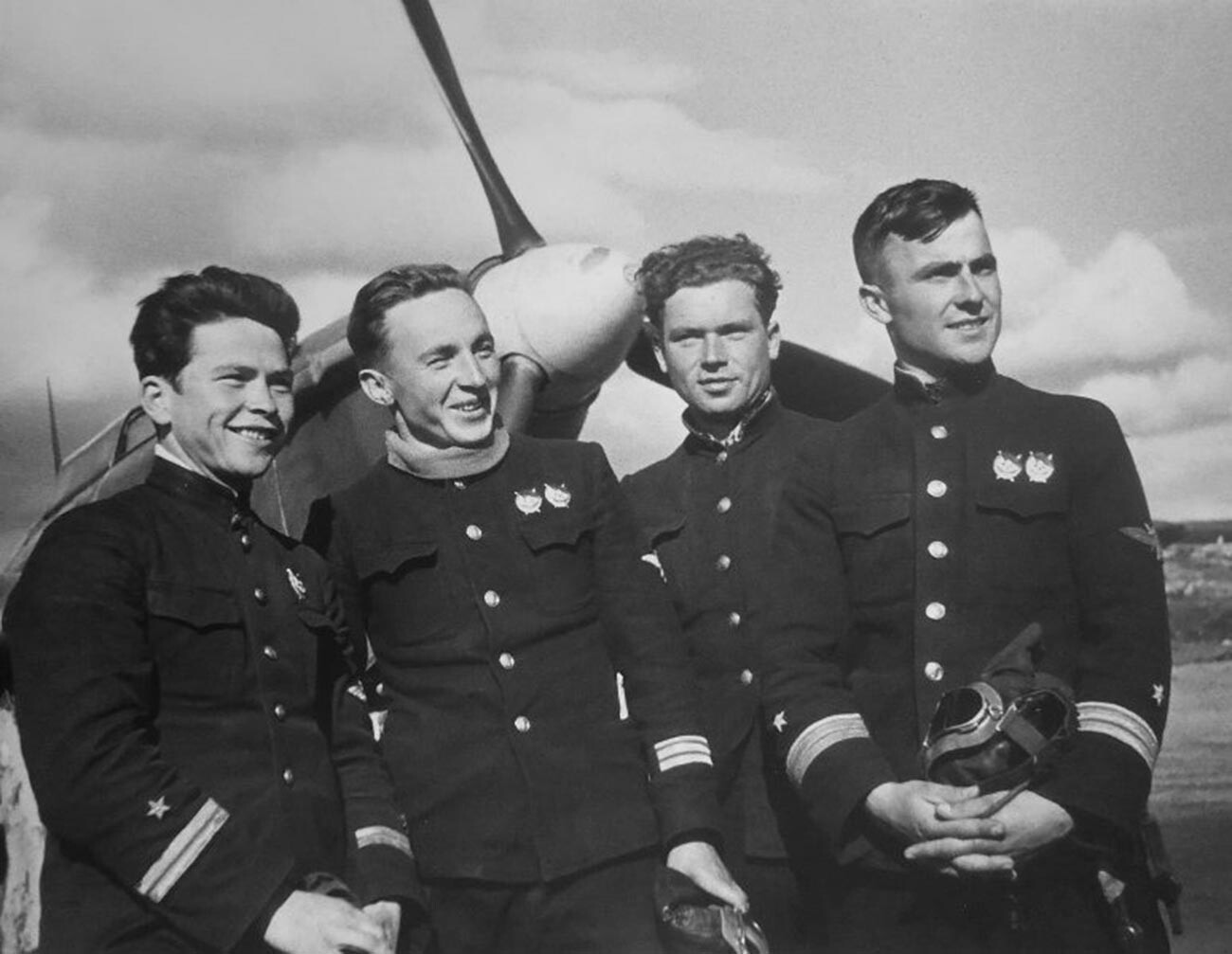
Having a smoke break after a long ski journey.
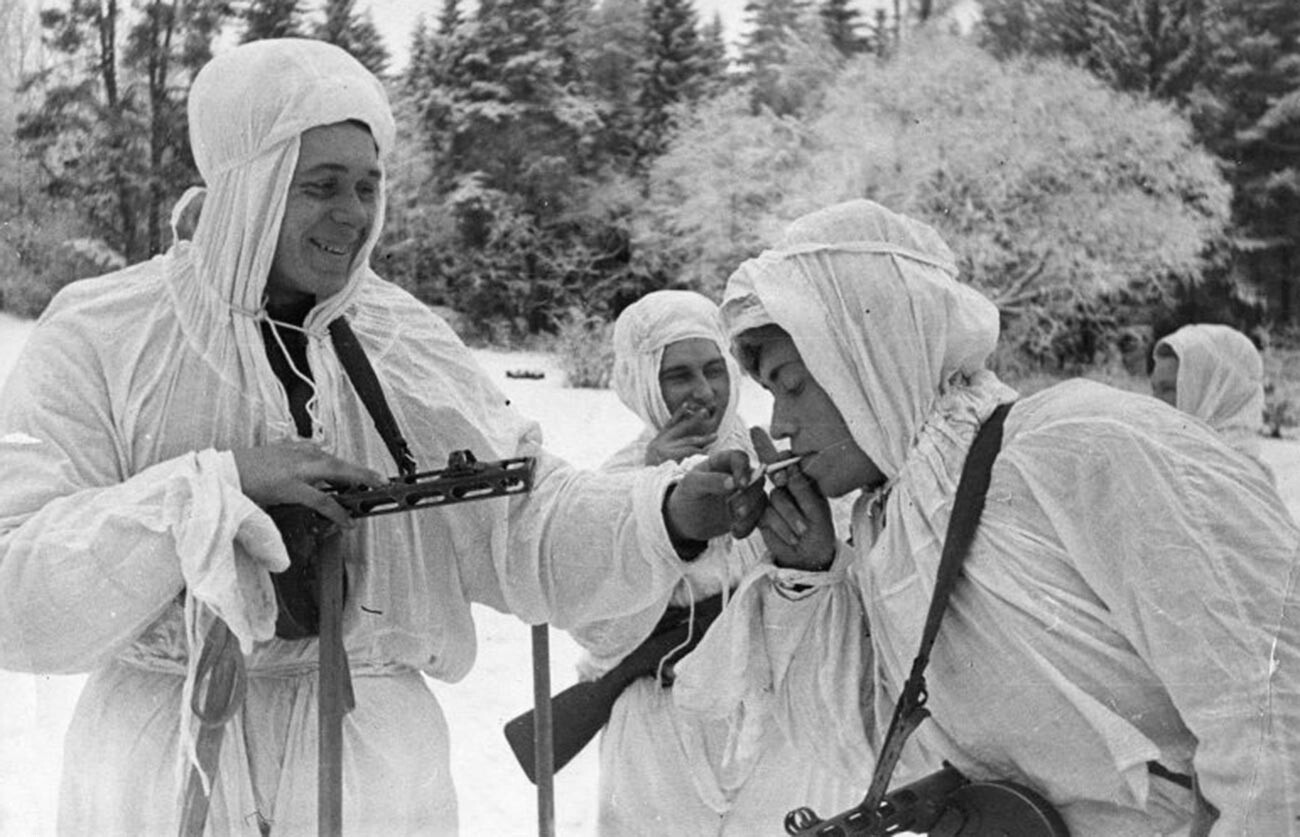
A Soviet reindeer herder with British aviation mechanics at one of the airfields in the Arctic.
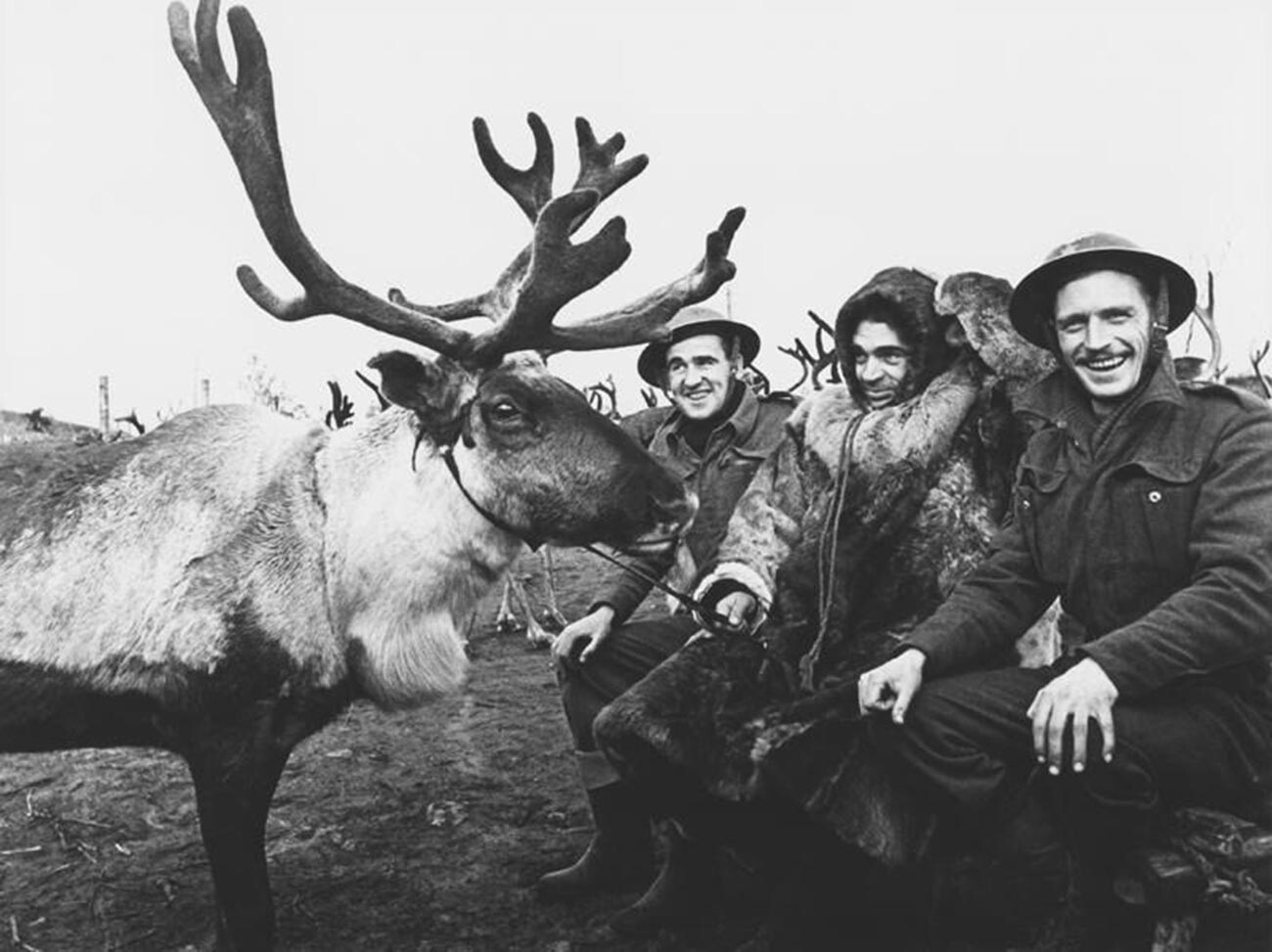
Ruins from one of the most horrible battles - the Battle of Stalingrad.
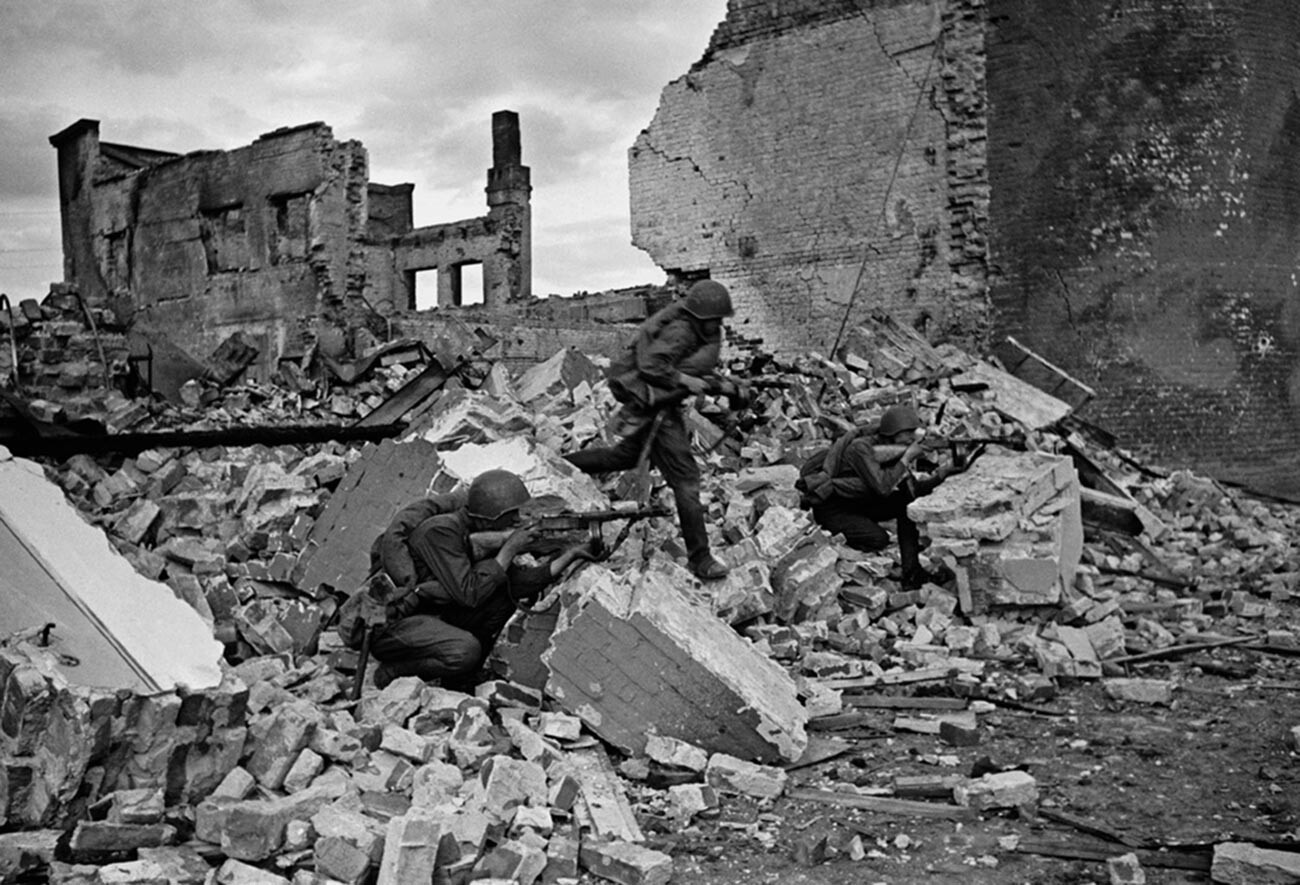
Remains of a fountain - an iconic photo taken in the destroyed Stalingrad.

Soviet soldiers receiving gifts from American workers.
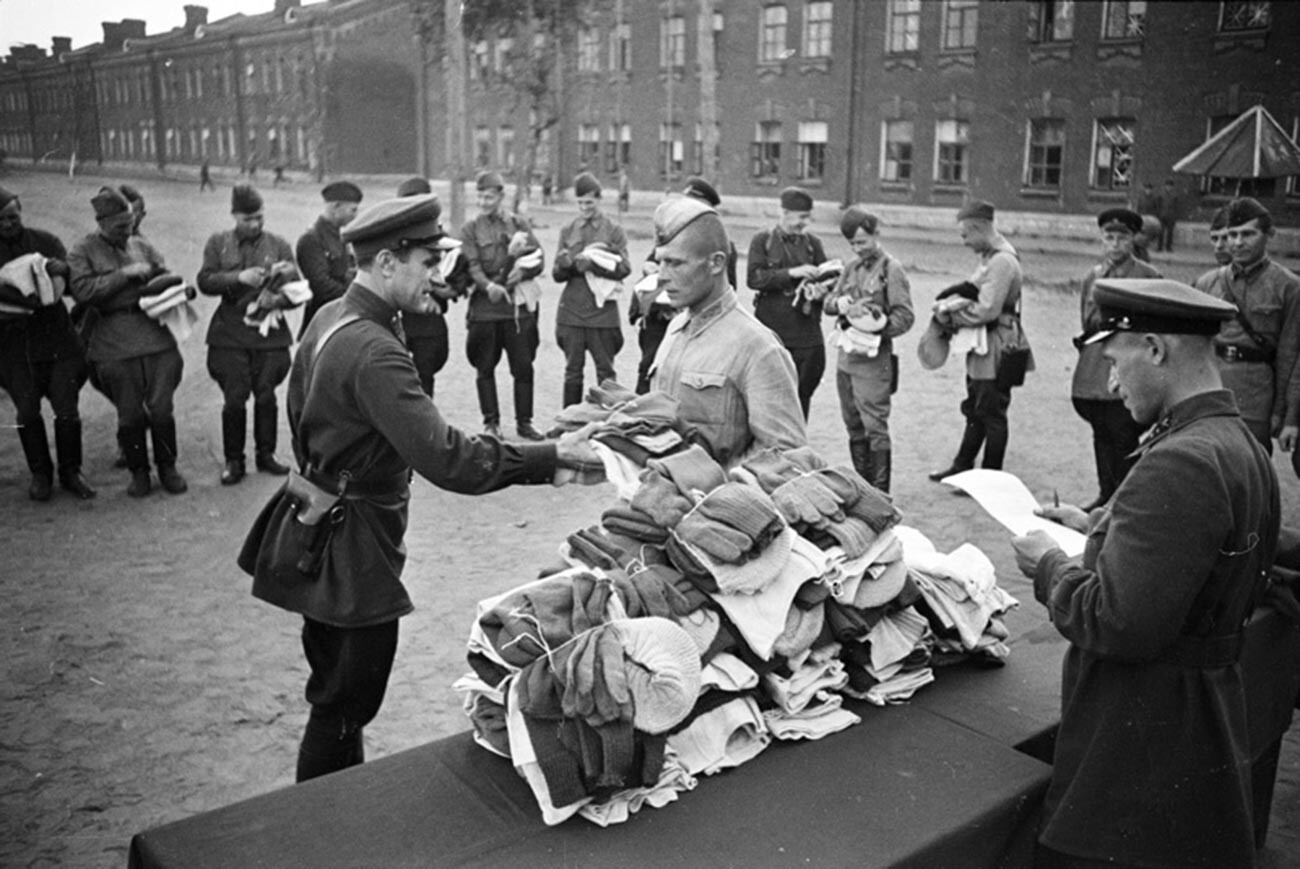
Even kids were volunteering to work in factories and preparing goods, uniforms and weapons for the front. Pictured below is a girl stacking shells in a factory.
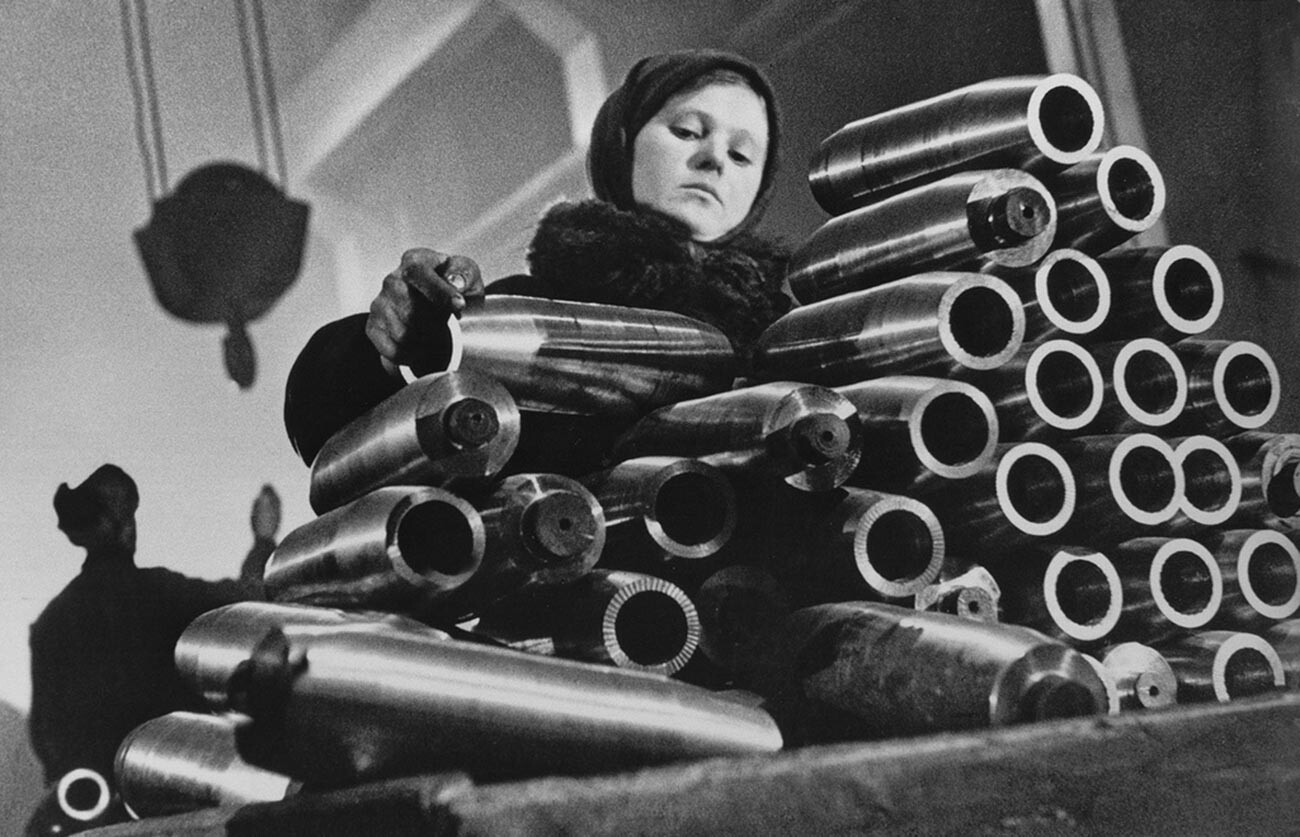
While most men were on the front line, women and kids took care of the household, earning money and surviving, with many school students becoming adults immediately. Pictured below are school boys shepherding cows.
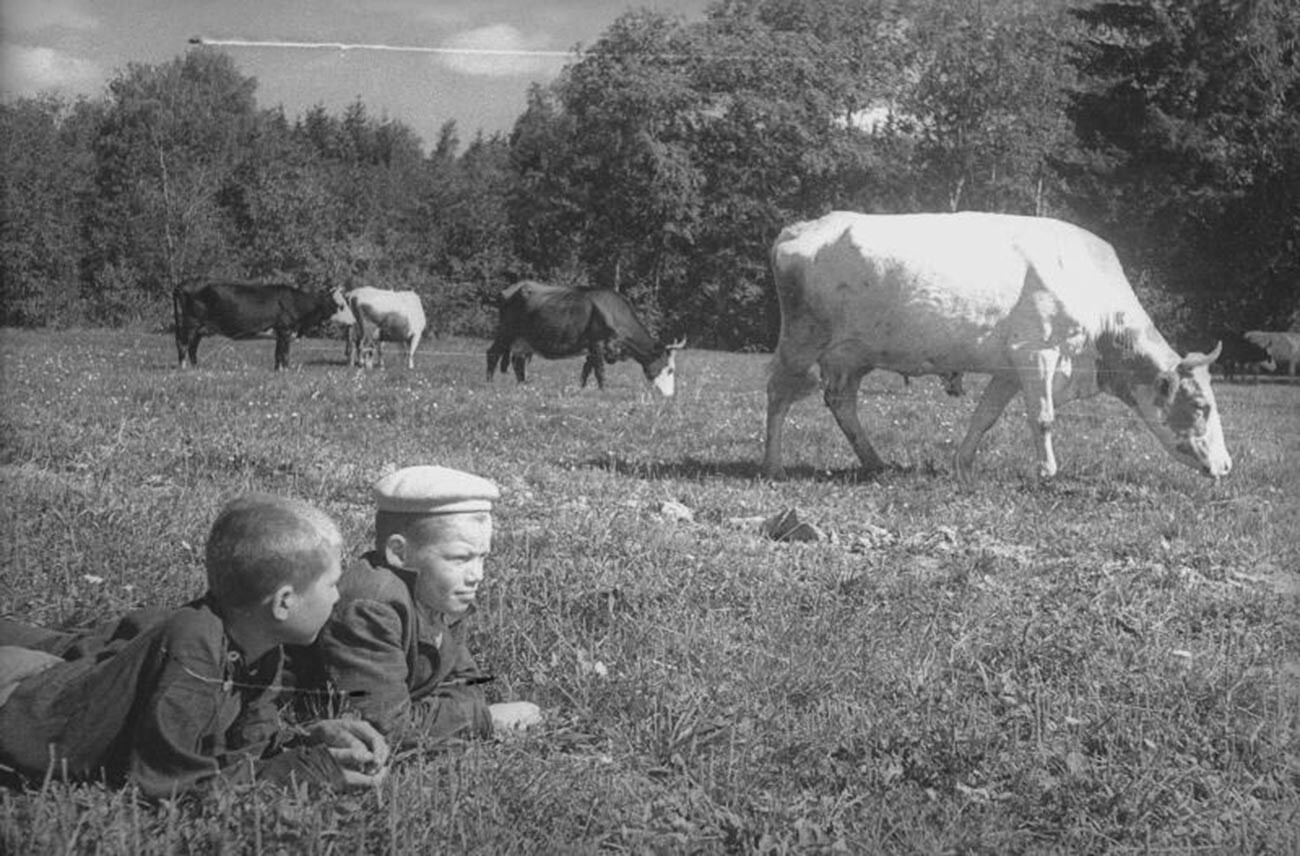
Pioneers and teachers preparing wood for warming up the school and the nearby houses.
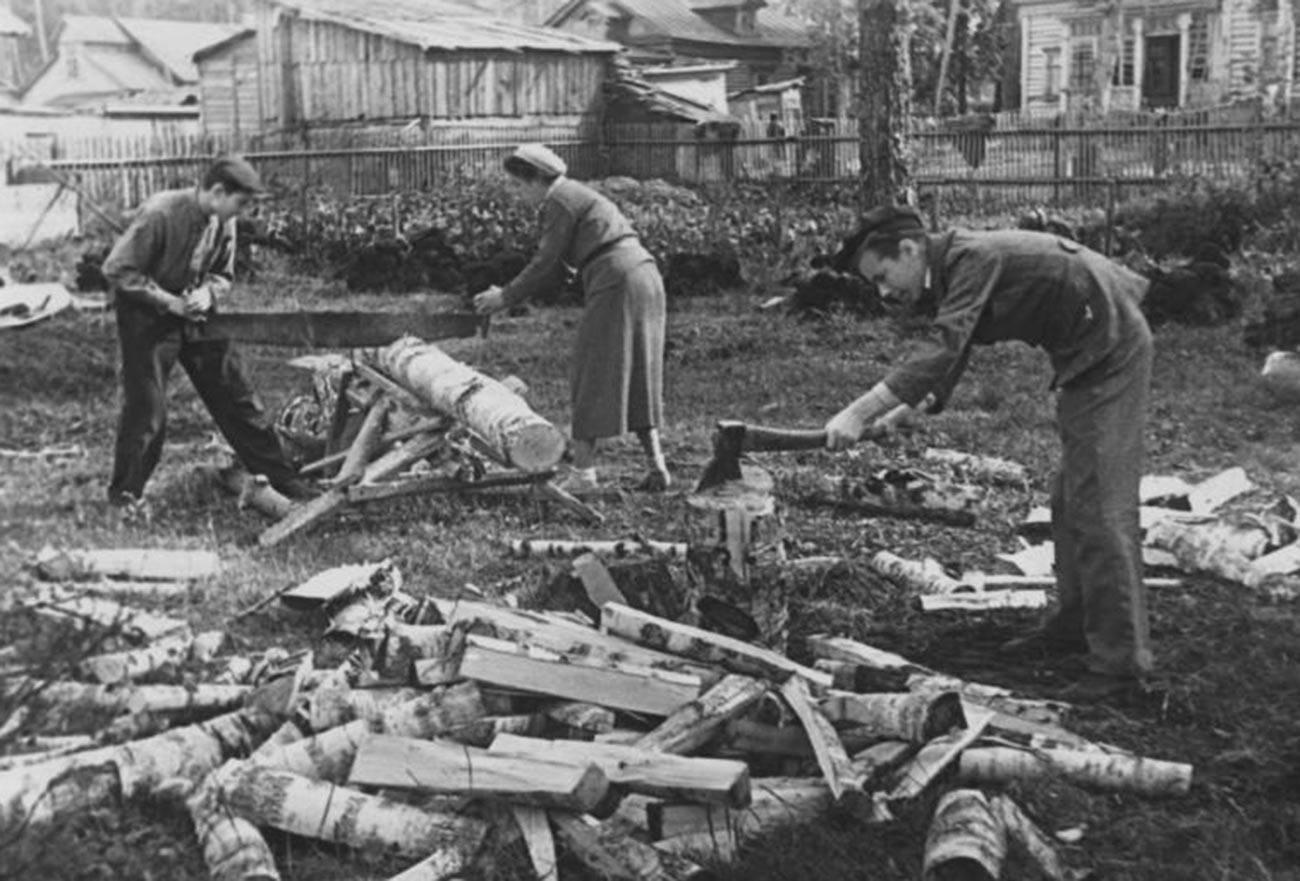
Students learning how to decontaminate chemical and radioactive substances in class.
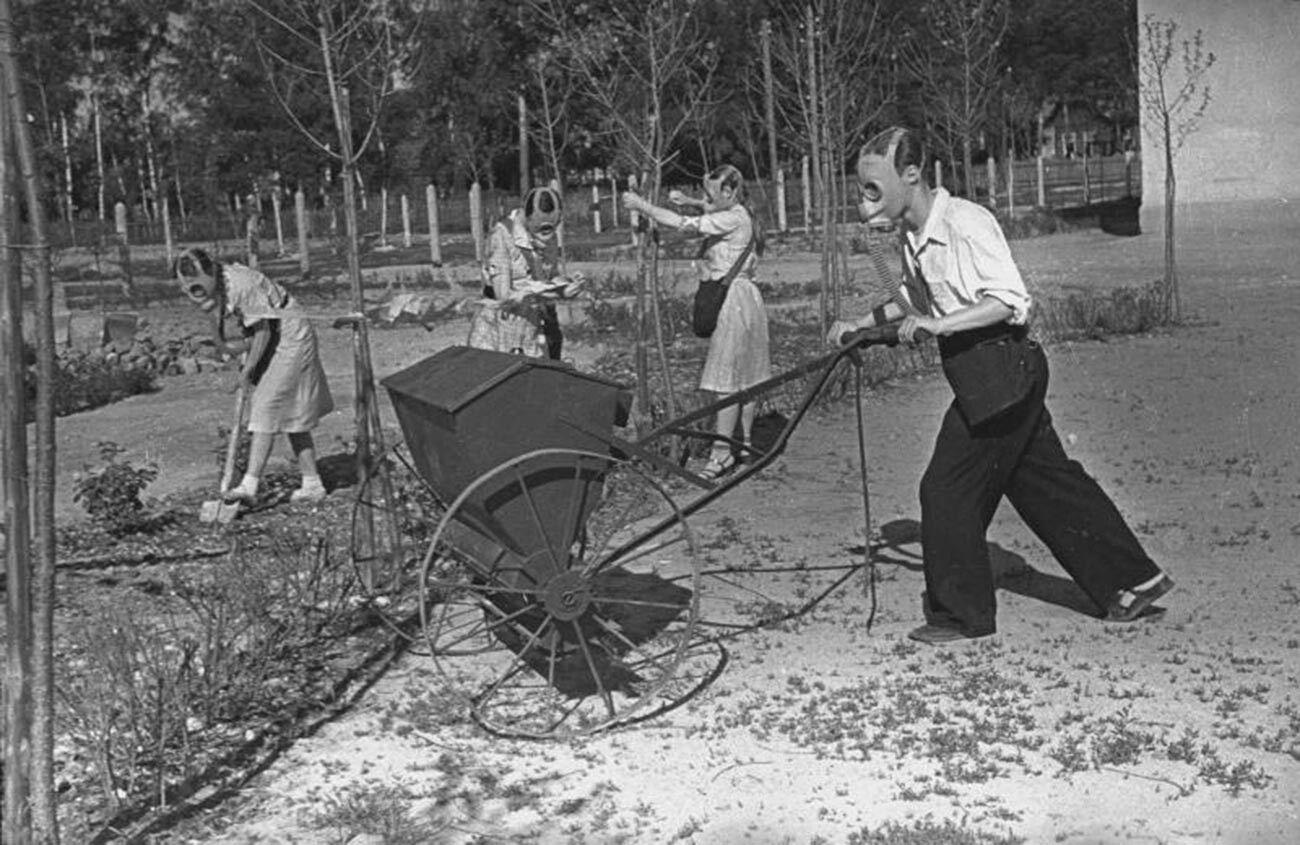
Girls preparing collected raspberries for cooking jam, in order to preserve them during winter.

Girls sewing for soldiers and front needs.
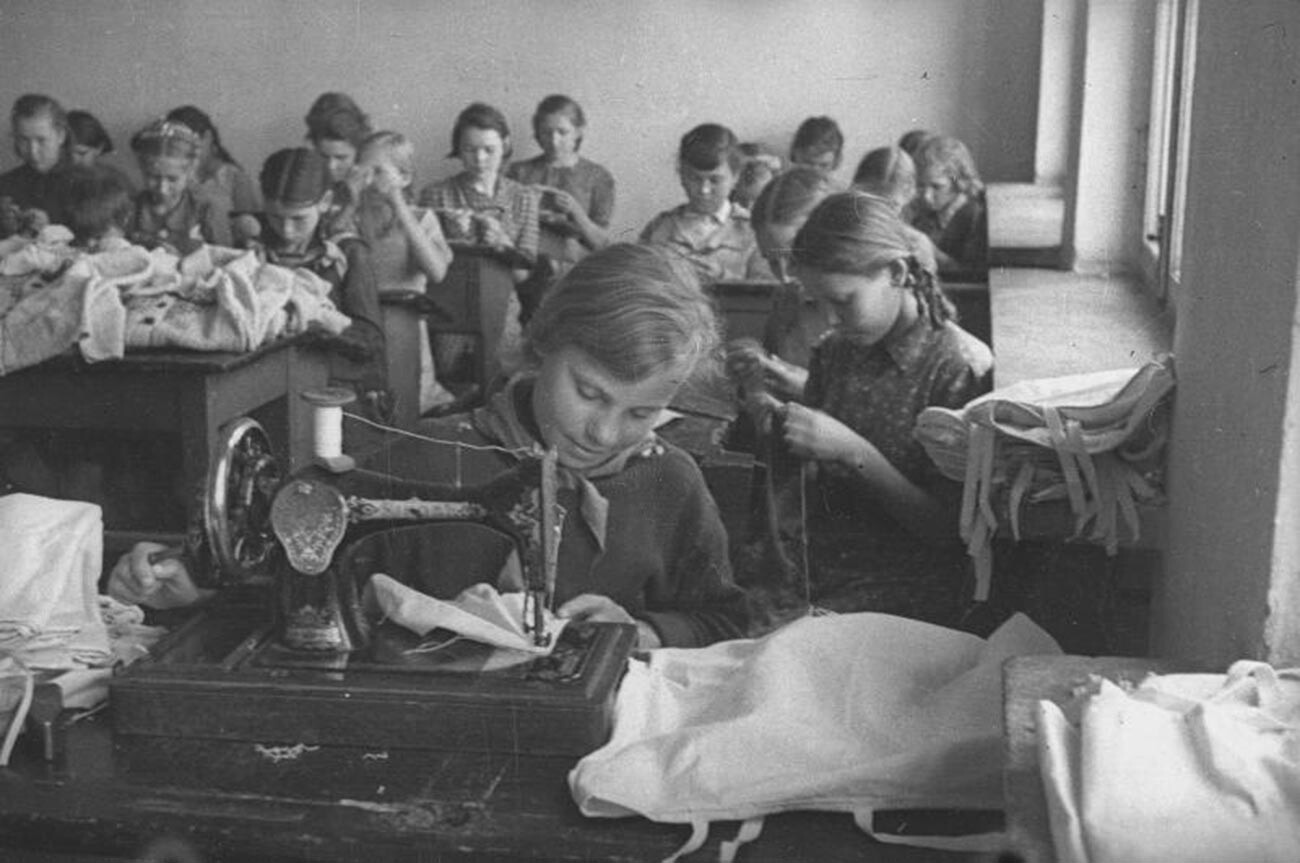
A young tractor driver.
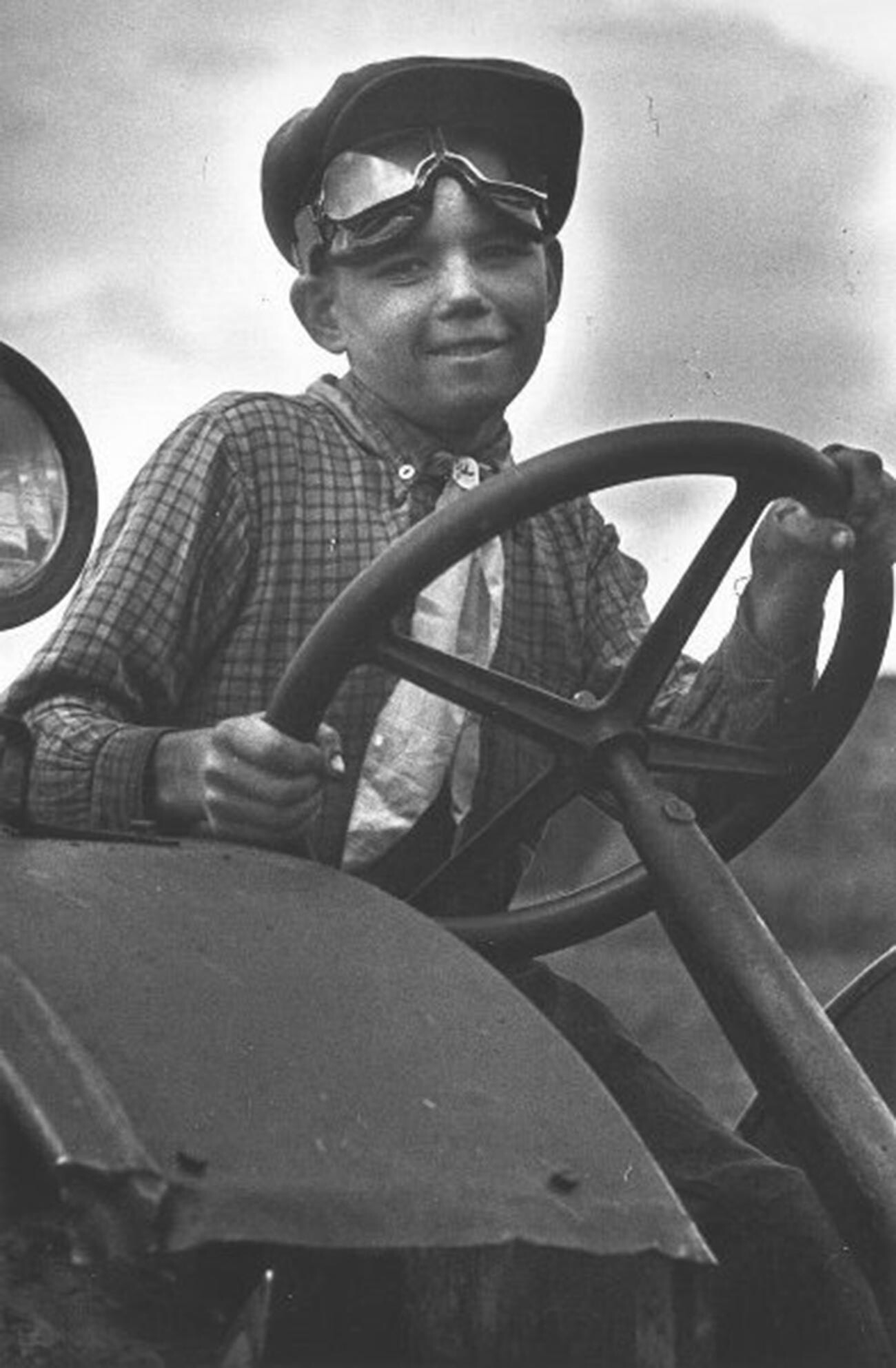
The Soviet people believed arts helped with recovery, so many musicians traveled around military hospitals and even the front line to perform for soldiers.
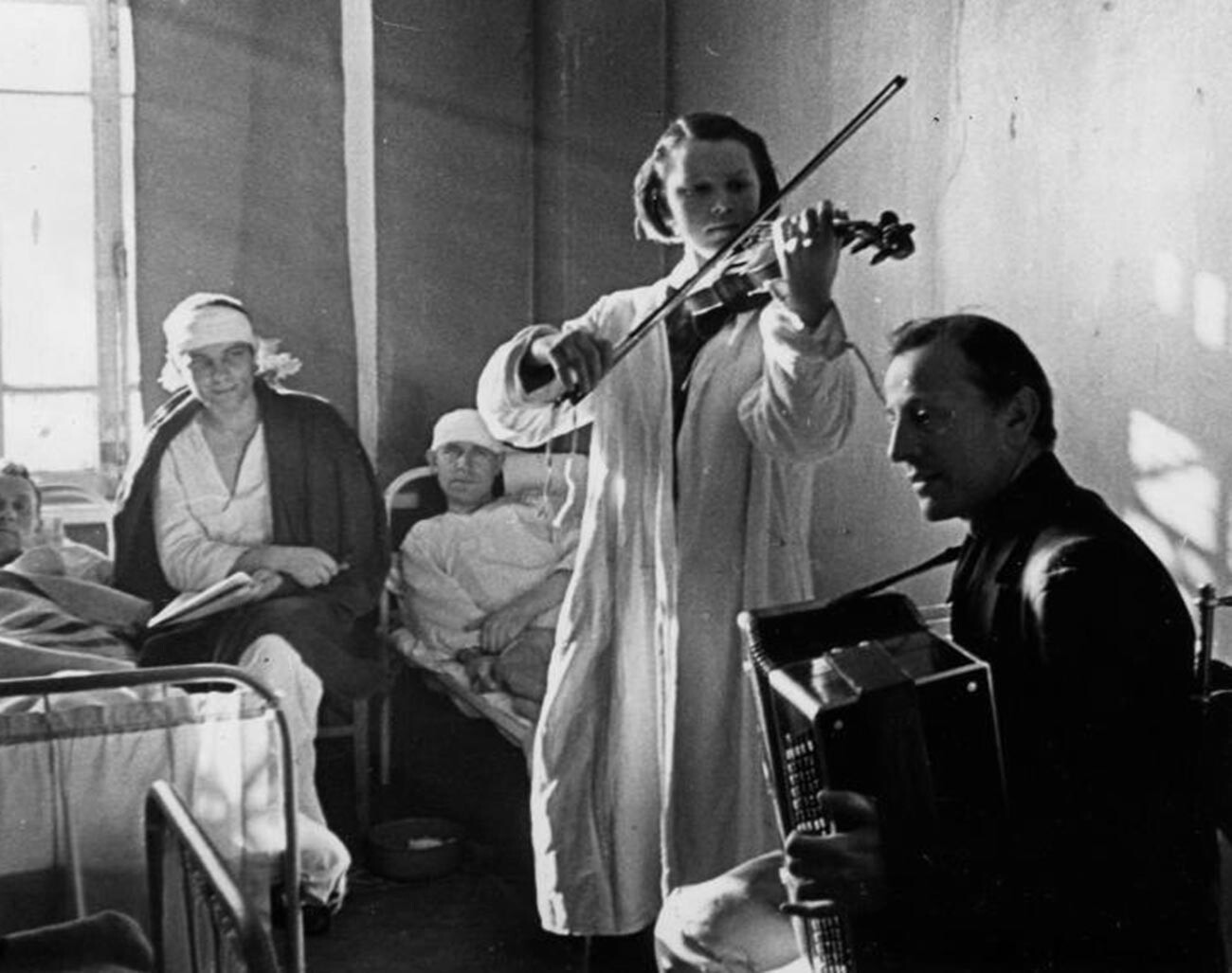
Artists performing for the Northern Fleet sailors.

Soviet women also took an active part in fighting the Nazis. Among them were extremely brave pilots, artillerists and, of course, nurses. Pictured is awarded female sniper Lyudmila Pavlichenko on position.
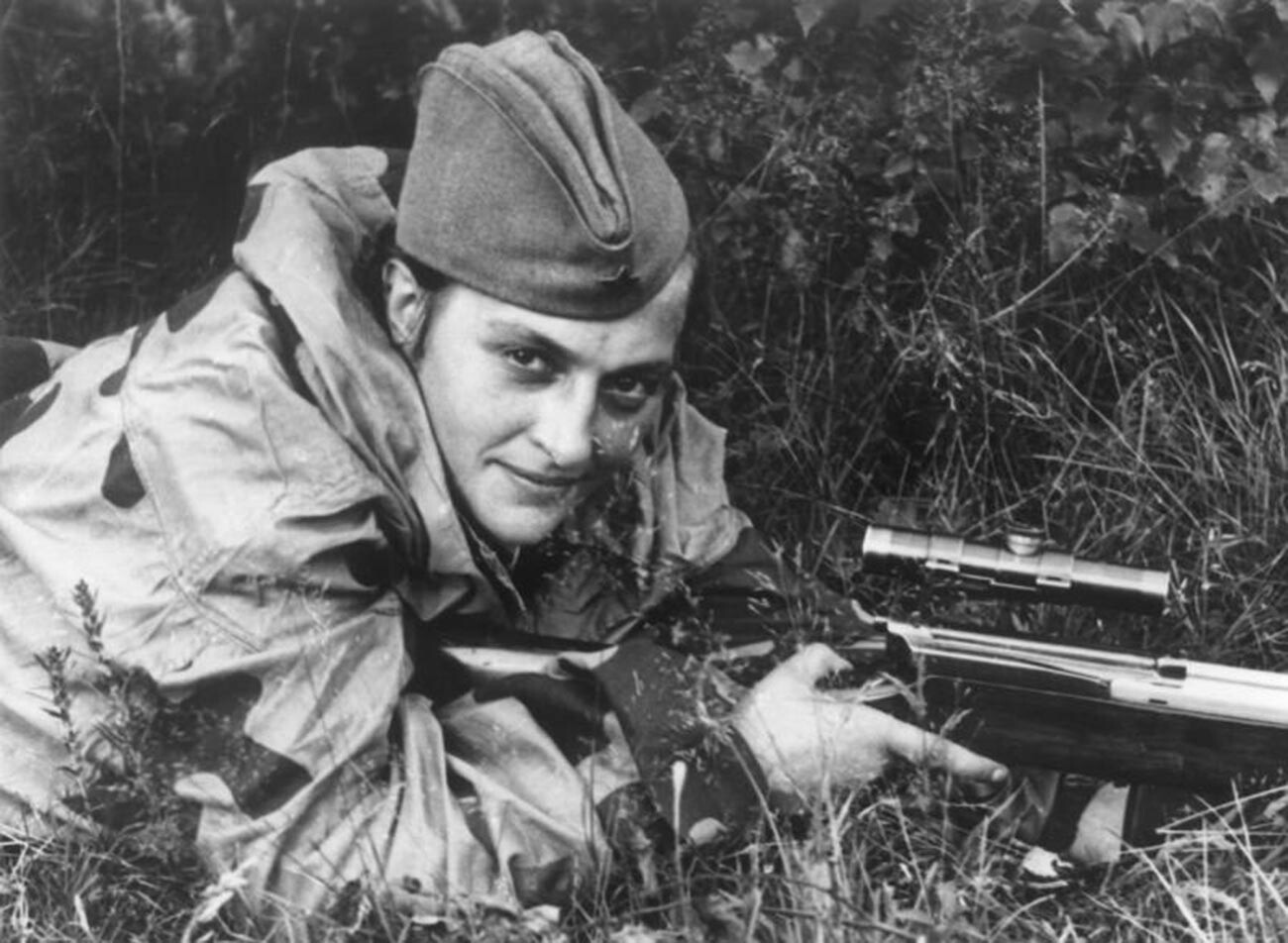
A partisan nurse milking a cow.
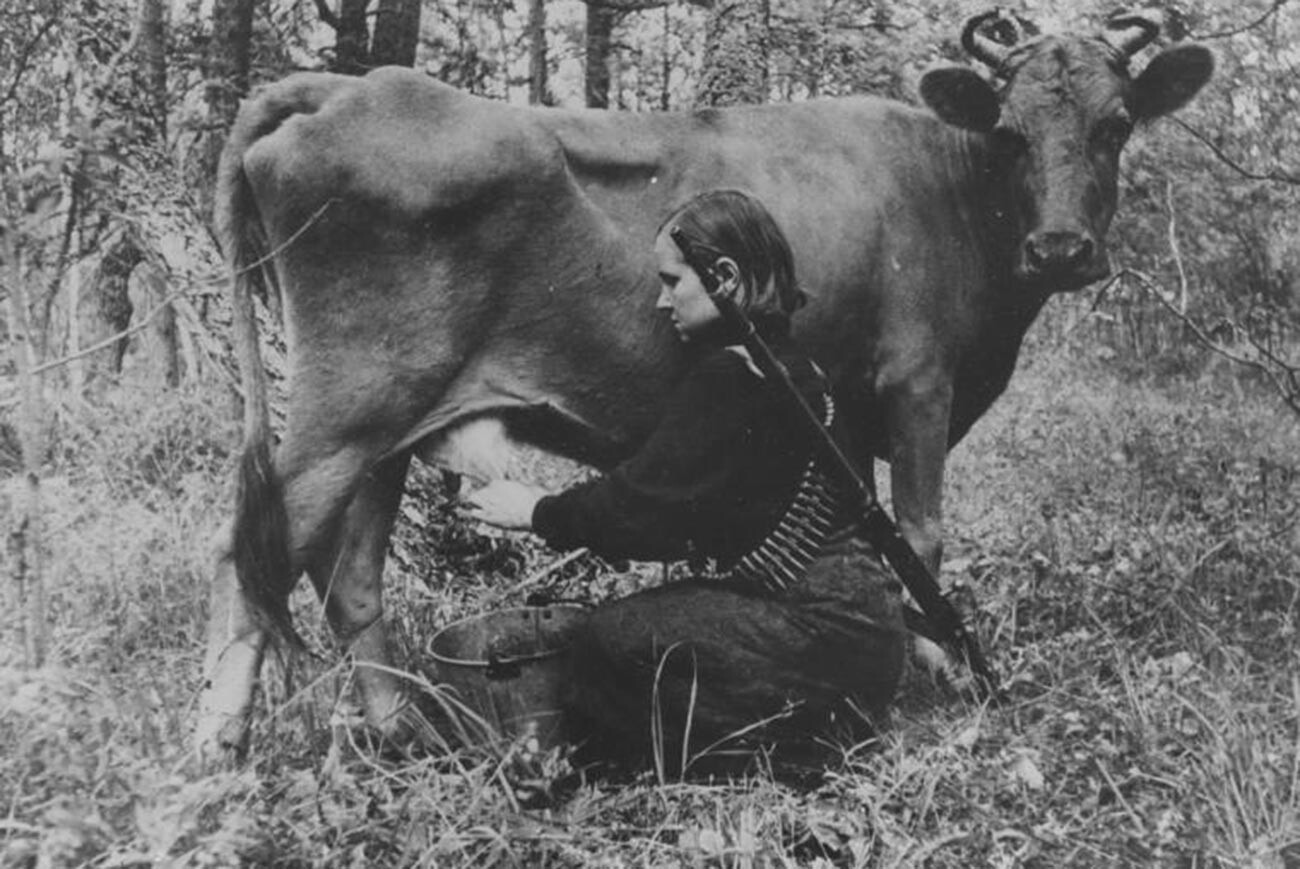
One of the darkest pages of World War II was the siege of Leningrad that lasted for almost 900 days. Blocked from the “big land” and any supplies, the citizens had to survive without food or warmth. Pictured below are ladies planting vegetables just in the very city center - near the St. Isaac’s Cathedral (that the Nazis didn’t bomb, as it served as an orientation point)
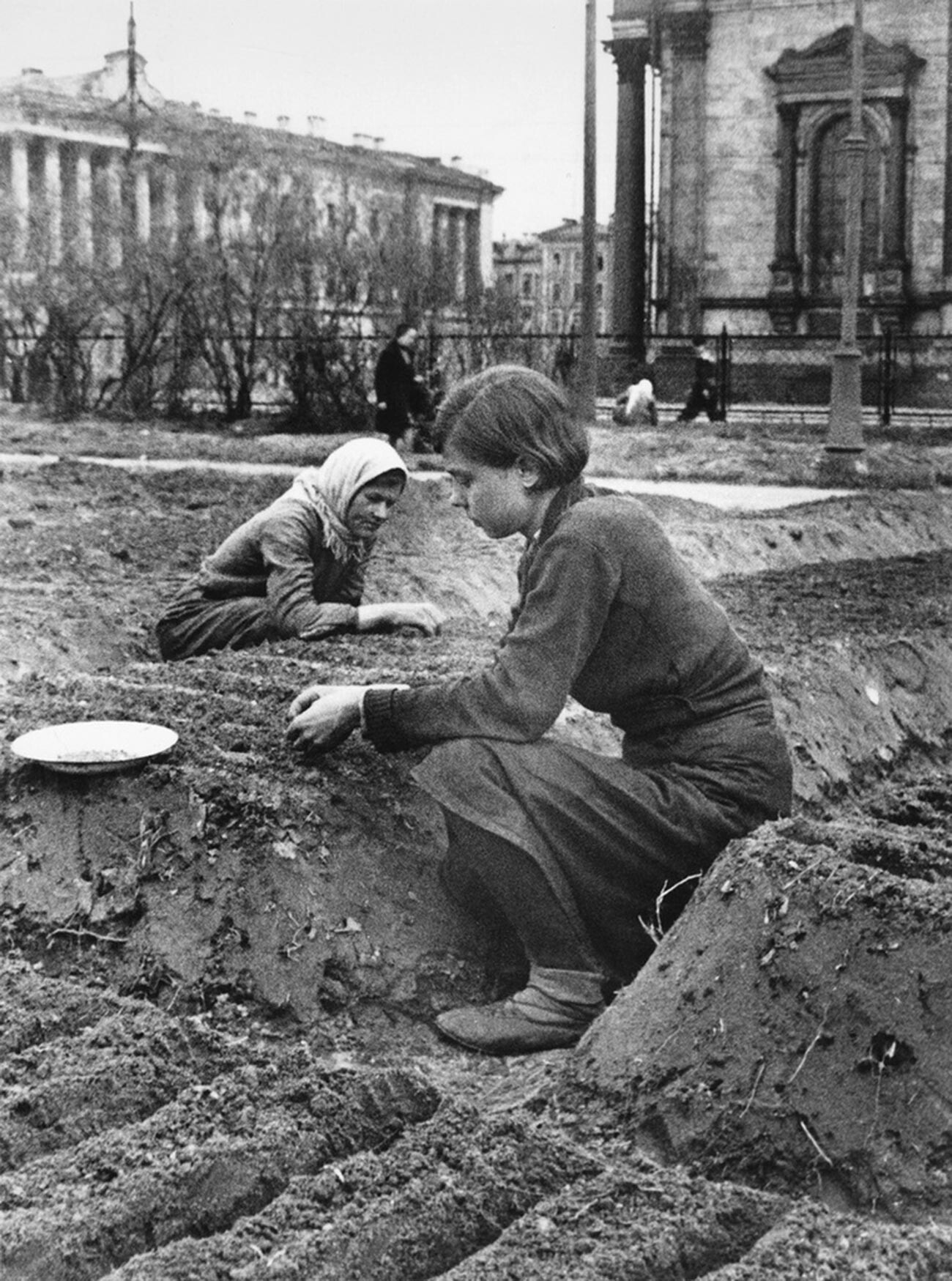
People did their best to keep living in the besieged Leningrad. Theaters and state institutions kept working as usual.

The Hermitage evacuated a big part of their priceless collection, but the museum staff left paintings’ frames hanging on the walls - in the hope that the masterpieces would be returned and that they could more easily find their original places.
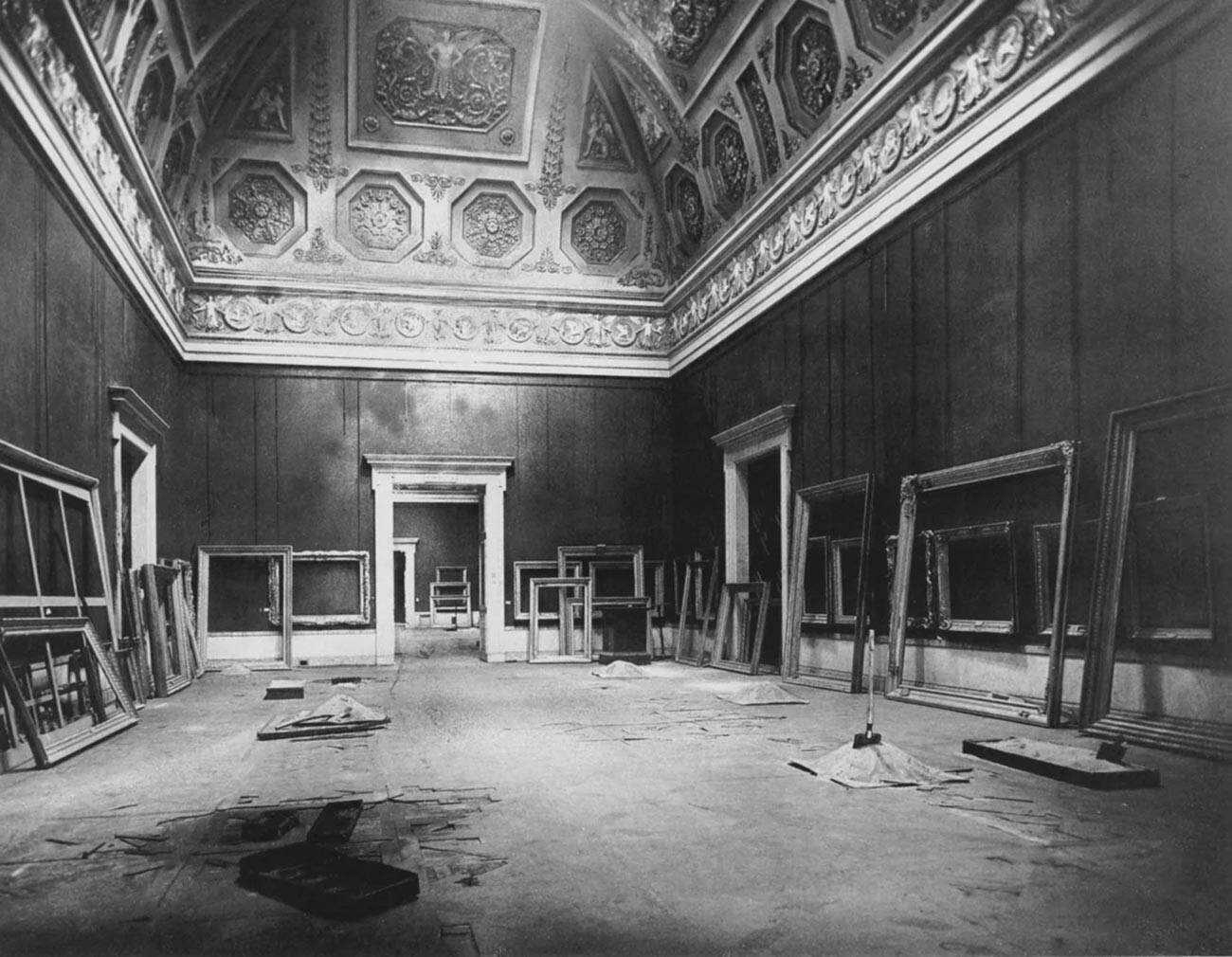
Composer Dmitri Shostakovich performing in Moscow.
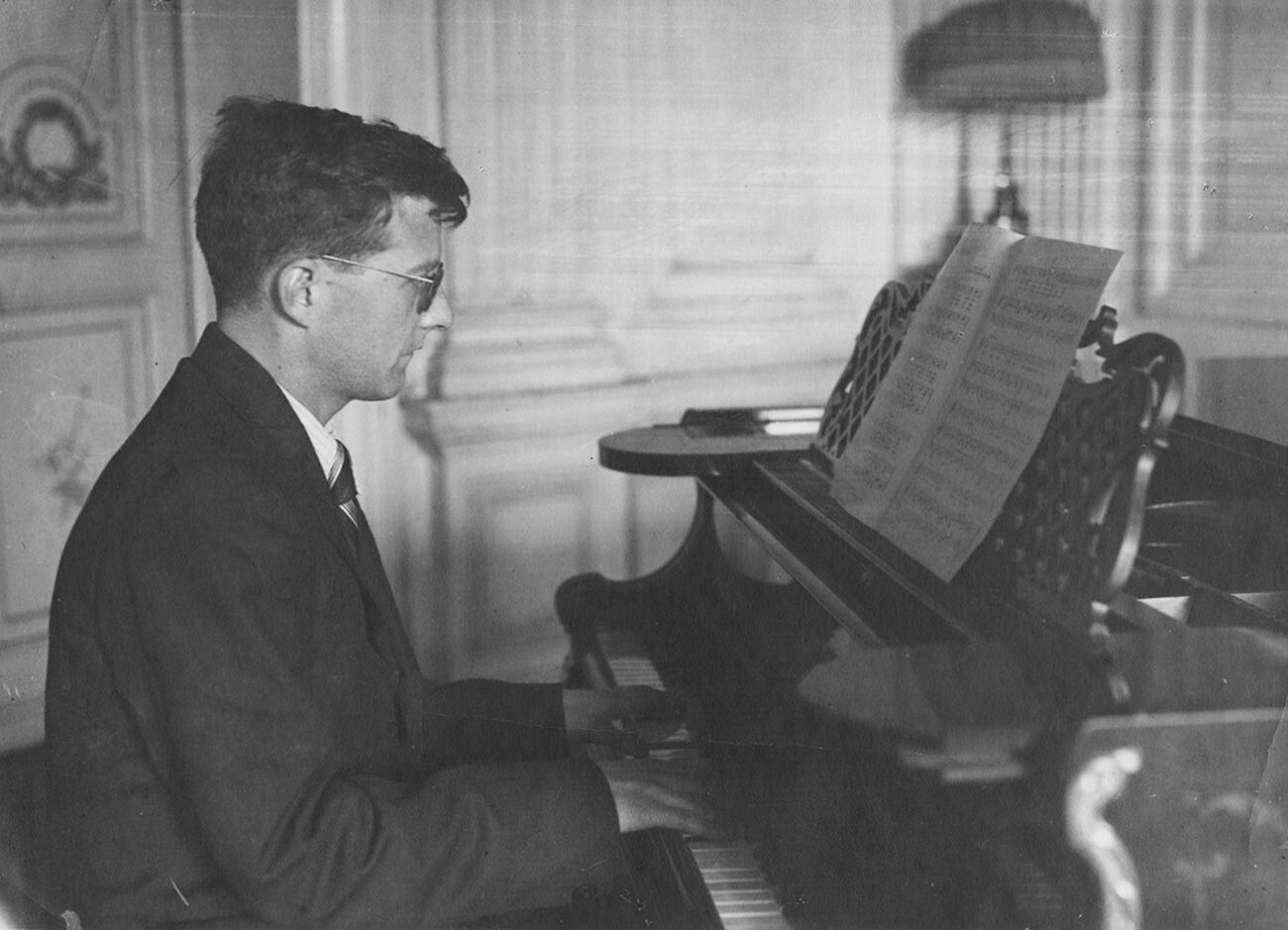
Despite the evil of war, we still have some photographs from that time showing people living their lives. Pictured below are kolkhoz (collective farming) peasants having a rest.
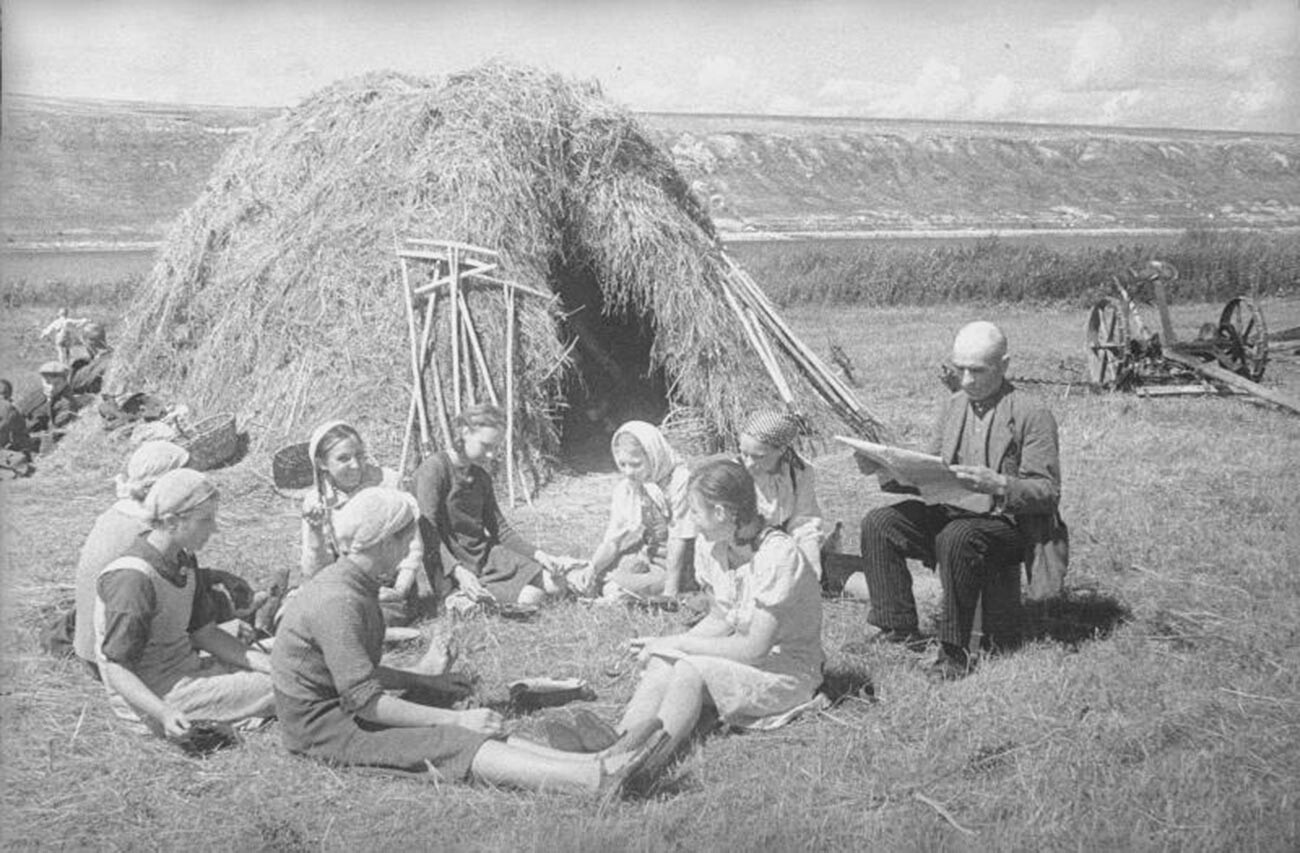
A huge meeting of pioneers.
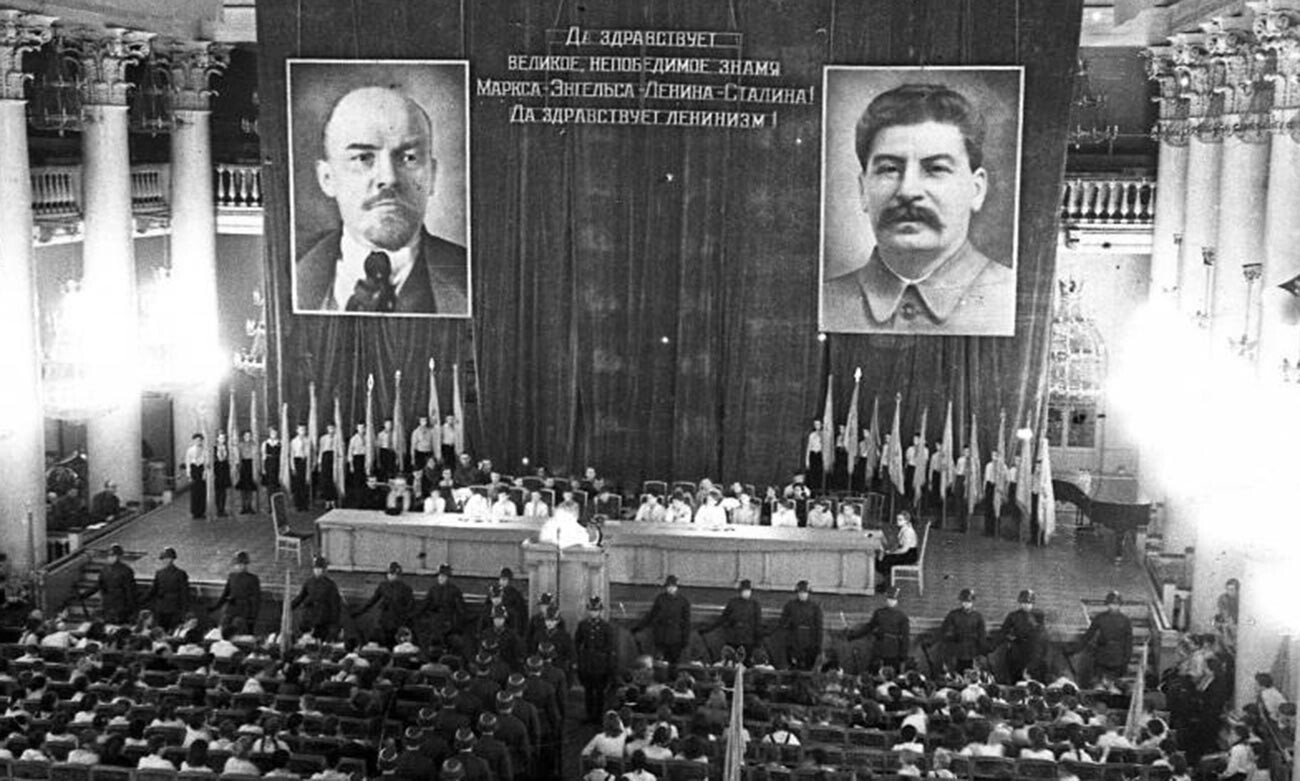
Pioneers in the House of Unions.
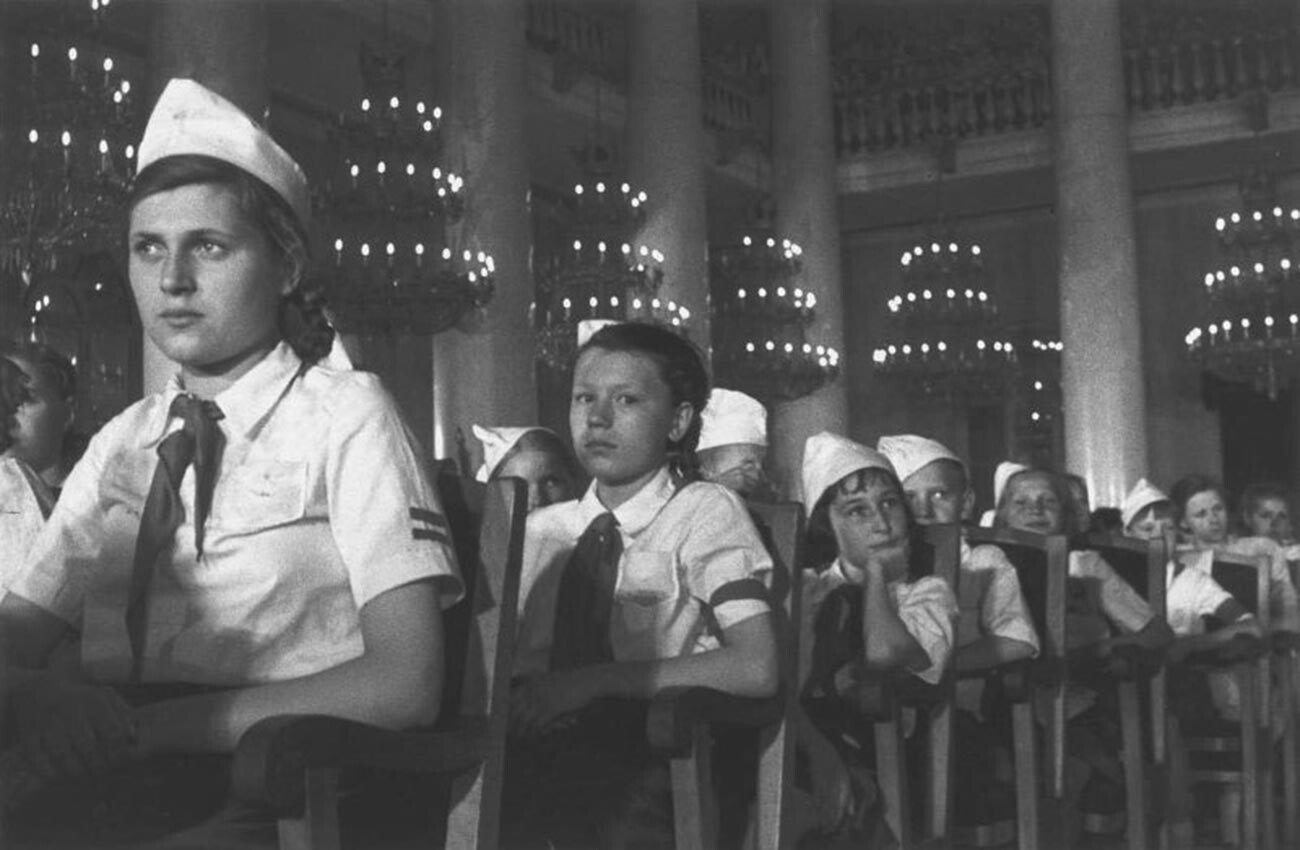
Pioneers playing soccer.
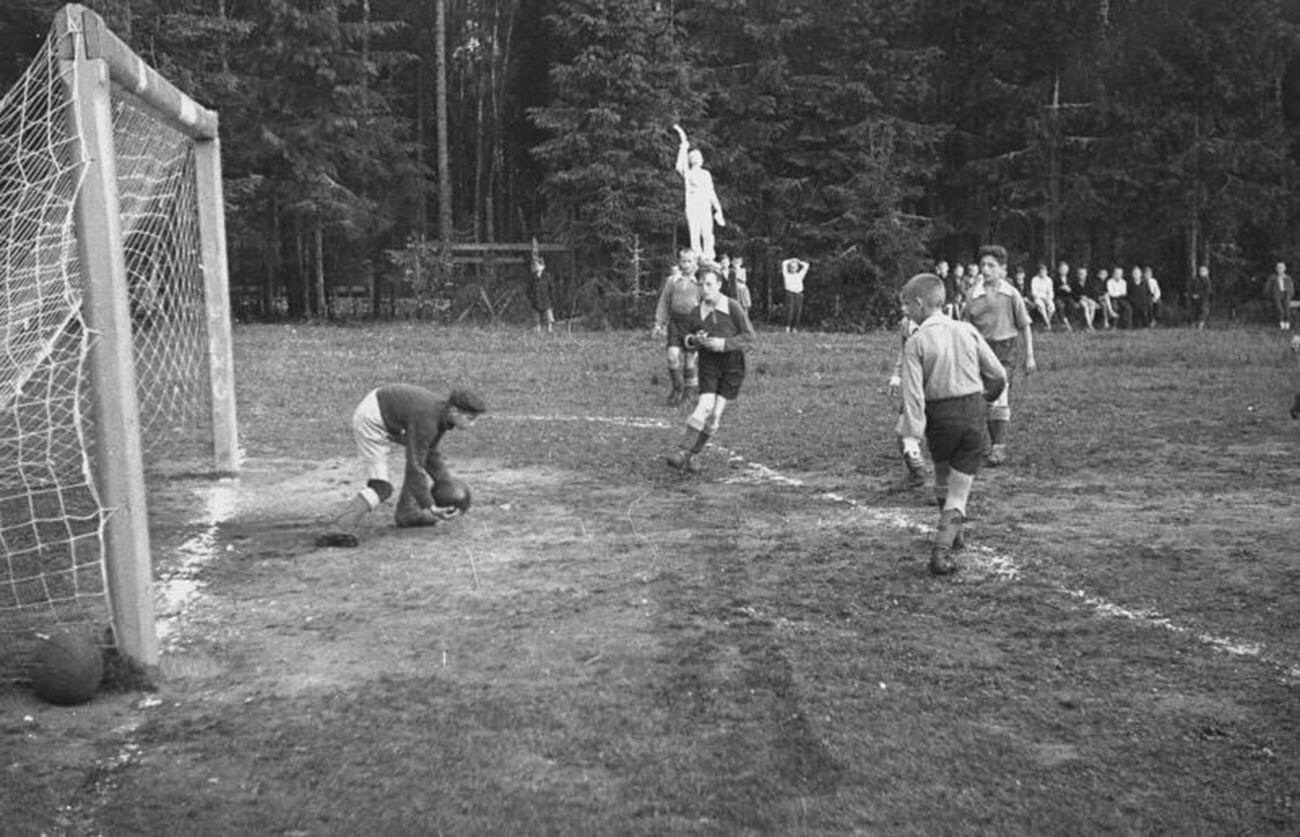
Moscow girls on their way to school.
